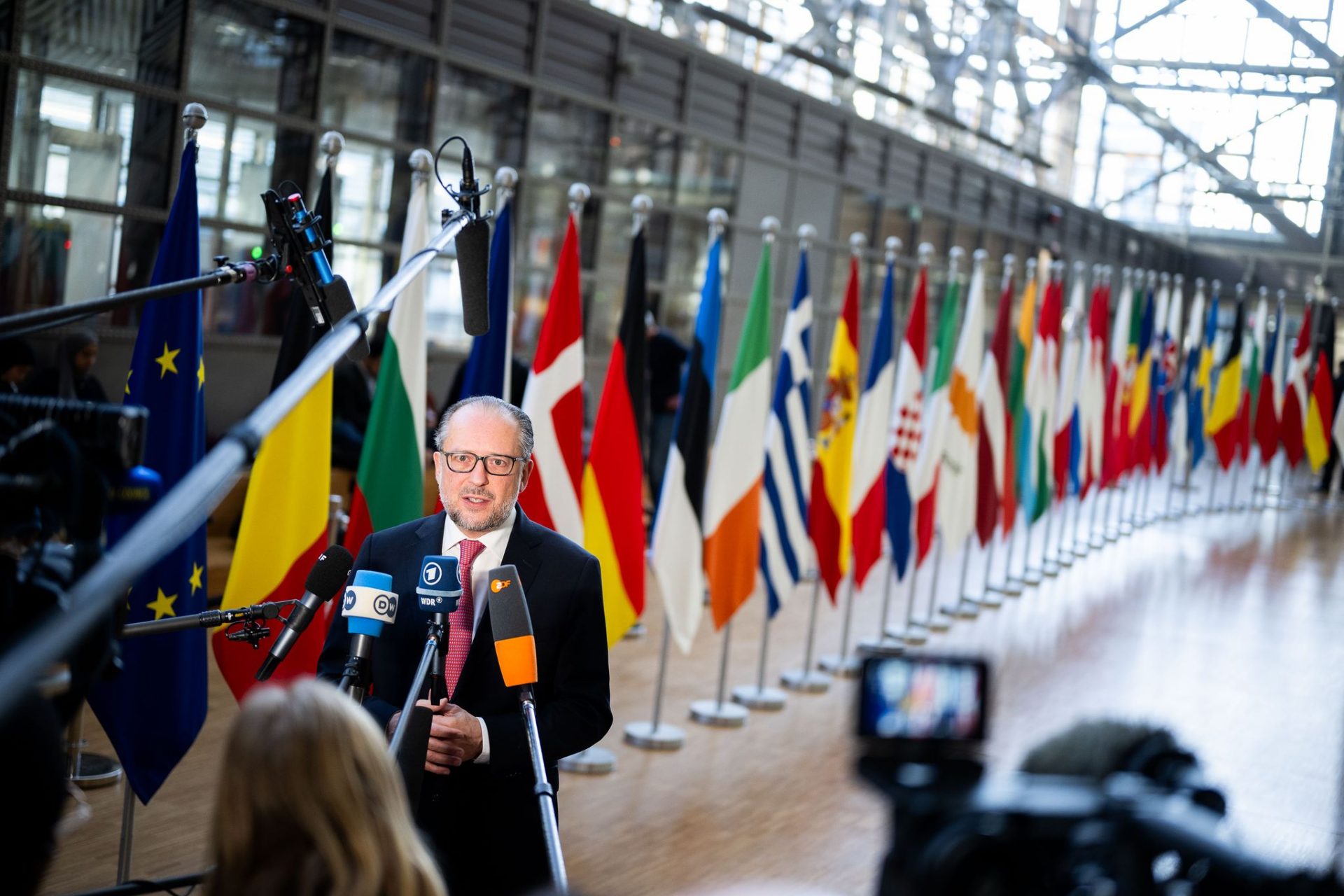Brussels – In a “trade war (with the USA, Note) everyone would pay and there would be a laughing third party, that would be China,” explained Austria’s interim Chancellor Alexander Schallenberg (ÖVP) before the start of the informal EU summit on Monday in Brussels to journalists. Schallenberg emphasized it makes “sense to come together without an overwhelming agenda” and to deal with two topics, security “and the relationship with the most important partner USA.”
“We have a ring of fire around Europe, we don’t know our future,” said the chancellor. It would be “sensible to consider what we need for the future,” and “not to take out fire insurance when the house is already on fire.”
“The USA is our most important trading partner, but also vice versa, we would harm each other,” said Schallenberg in view of the tariffs against EU goods announced again by US President Donald Trump and possible EU reactions. But: “We are prepared for it, it is not that all of this comes as a surprise. We are ready to stand up for our interests as the European Union.” It is particularly important “that we remain united and do not let ourselves be divided because only then are we strong.” Schallenberg warned against “threat gestures in advance” and expressed confidence that an agreement with the USA could be reached.
More money for defense
The second major topic of the summit is also to make Europe “more resilient, efficient, and autonomous in the area of security and defense.” Defense budgets are to increase. As a neutral country, Austria takes on a special role here. Schallenberg emphasized there is “no standard size for defense policy in the EU,” every state has its own policy and there are states like Austria, which are neutral. However, even within the framework of neutrality, “pooling and sharing,” joint research and procurement, are “also advantageous for us and would make sense.”
He is very much in favor of applying the rules of the internal market to defense as well. “Everyone is currently buying from their own defense industries, and there are no Europe-wide purchases,” said Schallenberg. He emphasized he is not part of the government negotiations and does not want to pre-empt, but even in airspace monitoring Austria’s baseline has remained unchanged for years and pooling makes sense. The background is discussions about a possible withdrawal from the “Sky Shield” system.
Schallenberg welcomed that with British Prime Minister Keir Starmer, for the first time since Brexit, a Briton is again at the table at dinner. He appealed for “much closer cooperation also with Great Britain in the security area.” Both sides have weakened themselves with Brexit here, “we should go beyond our own shadows,” and “seek opportunities for new, innovative cooperation.” (02/04/2025)
 go to the original language article
go to the original language article
